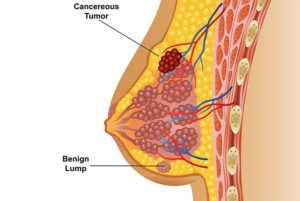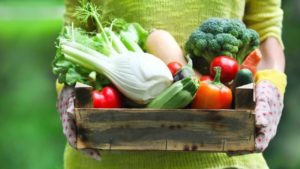AnalyticsBreaking NewsFeature Story
Cancer and Inflammation- Role of Diet, writes Dr. Lopamudra Das Roy


July 17: Cancer also known as malignant tumor is the uncontrolled growth of abnormal cells in the body. In the
body, there are trillions of cells with various functions. These cells grow and divide to help the body function properly. Cells die when they become old or damaged, and new cells replace them. Cancer develops when the body’s normal control mechanism stops working. Old cells do not die and cells grow out of control, forming new, abnormal cells. These extra cells may form a mass of tissue, called a tumor. Among the most commonly diagnosed cancer, and most prevalent cause of cancer death in women is breast cancer; estimated to affect 1 out of every 8 women.
 Even with today’s cutting-edge research technology, much remains to be discovered about how best to treat and manage this serious illness. Metastatic breast cancer (also called advanced or stage IV breast cancer) is breast cancer that has spread beyond the breast and nearby lymph nodes to other parts of the body. The most devastating aspect of breast cancer is the emergence of tumor cells that are capable of spreading to distant organs such as bones, liver, brain and lungs. As hard as it is to hear, metastatic breast cancer cannot be cured. This does not mean, however, that metastatic breast cancer cannot be treated. Because current treatments are very unlikely to cure advanced breast cancer, treatment of metastatic breast cancer focuses on span and quality of life. Metastasis is regulated not only by intrinsic genetic changes in malignant cells, but also by the micro-environment.
Even with today’s cutting-edge research technology, much remains to be discovered about how best to treat and manage this serious illness. Metastatic breast cancer (also called advanced or stage IV breast cancer) is breast cancer that has spread beyond the breast and nearby lymph nodes to other parts of the body. The most devastating aspect of breast cancer is the emergence of tumor cells that are capable of spreading to distant organs such as bones, liver, brain and lungs. As hard as it is to hear, metastatic breast cancer cannot be cured. This does not mean, however, that metastatic breast cancer cannot be treated. Because current treatments are very unlikely to cure advanced breast cancer, treatment of metastatic breast cancer focuses on span and quality of life. Metastasis is regulated not only by intrinsic genetic changes in malignant cells, but also by the micro-environment.

Several studies have demonstrated that sites of chronic inflammation are often associated with the establishment and growth of various malignancies. In addition, the immune system appears to play an overseer’s role in both diseases. Inflammation orchestrates the micro-environment around tumors, contributing to proliferation, survival and migration. Inflammation is part of the body’s immune response; without it, we cannot heal. But when it’s out of control—as in rheumatoid arthritis—it can damage the body. As the evidence linking chronic inflammation to cancer progression grows, it becomes increasingly important to understand why this risk exists. A common inflammatory condition in humans is autoimmune arthritis (AA) that causes inflammation.
 From our studies, we have reported that breast cancer associated metastasis is significantly augmented with arthritis and we evaluated and established the mechanism. Chronic inflammation might increase the risk of breast cancer recurrence. These insights are fostering new anti-inflammatory therapeutic approaches to cancer development. Stress, lack of exercise, genetic predisposition, and exposure to toxins can all contribute to such chronic inflammation, but dietary choices play a big role as well. Learning how specific food influence the inflammatory process is the best strategy for containing it and reducing disease risks specially cancer.
From our studies, we have reported that breast cancer associated metastasis is significantly augmented with arthritis and we evaluated and established the mechanism. Chronic inflammation might increase the risk of breast cancer recurrence. These insights are fostering new anti-inflammatory therapeutic approaches to cancer development. Stress, lack of exercise, genetic predisposition, and exposure to toxins can all contribute to such chronic inflammation, but dietary choices play a big role as well. Learning how specific food influence the inflammatory process is the best strategy for containing it and reducing disease risks specially cancer.
List of food that may curb inflammation:
1. Turmeric and Ginger: Curcumin-a derivative of turmeric, and the pigment that gives the curry spice turmeric its yellow-orange color appears to be universally useful for just about every type of cancer. It has the ability to modulate genetic activity and expression, both by destroying cancer cells, and by promoting healthy cell functions. Turmeric also works in the body by helping to turn off NF-kappa B, protein that regulates the immune system and triggers the process of inflammation. Its relative ginger possesses numerous therapeutic properties including antioxidant effects, an ability to inhibit the formation of inflammatory compounds, and direct anti-inflammatory effects.
2. Onions and garlic: Onions contain several anti-inflammatory compounds that contribute to reducing symptoms that are associated with a host of inflammatory conditions like osteoarthritis and rheumatoid arthritis, the allergic inflammatory response of asthma and the respiratory congestion that is a symptom of the common cold. Onions and their cousin garlic both contain compounds that inhibit enzymes that generate inflammatory prostaglandins and thromboxane. Both vitamin C and quercetin contribute to this beneficial effect. They work synergistically to spell relief from inflammation, making both onions and garlic good choices as ingredients in many dishes during cold and flu season. Garlic also has the ability to reduce the buildup of carcinogenic compounds that cause cancer.
3. Fatty fish: Oily fish, like salmon, mackerel, tuna and sardines, are high in omega-3 fatty acids, which have been shown to help reduce inflammation.
4. Whole grains: Consuming most of our grains as whole grains, as opposed to refined, white bread, cereal, rice, and pasta can help keep harmful inflammation at bay. That’s because whole grains have more fiber, which has been shown to reduce levels of C-reactive protein, a marker of inflammation in the blood, and they usually have less added sugar.
5. Dark leafy greens: Studies have suggested that vitamin E may play a key role in protecting the body from pro-inflammatory molecules called cytokines—and one of the best sources of this vitamin is dark green veggies, such as spinach, kale, broccoli, and collard greens. Dark greens and cruciferous vegetables also tend to have higher concentrations of vitamins and minerals like calcium, iron and disease fighting phytochemicals than those with lighter colored leaves.
6. Nuts: Another source of inflammation-fighting healthy fats is nuts—particularly almonds, which are rich in fiber, calcium, and vitamin E, and walnuts, which have high amounts of alpha-linolenic acid that reduces inflammation.
7. Peppers: Chili peppers contain a substance called capsaicin which is a potent anti-inflammatory agent. It works by inhibiting Substance P, which is associated with inflammatory processes. Capsaicin is being looked at as a potential treatment for arthritis, psoriasis and diabetic neuropathy. A study published in Cancer Research found that capsaicin caused cancer cells to commit suicide.
8. Tomatoes: Juicy red tomatoes, specifically, are rich in lycopene, which has been shown to reduce
inflammation in the lungs and throughout the body.
9. Olive oil: The compound oleocanthal, which gives olive oil its taste, has been shown to have asimilar effect as Non-steroidal anti-inflammatory drugs (NSAID) in the body.
10. Beets: This vegetable’s brilliant red color is a tip-off to its equally brilliant antioxidant properties: Beets (and beetroot juice) have been shown to reduce inflammation, as well as protect against cancer and heart disease, thanks to their hearty helping of fiber, vitamin C and plant pigments called betalains.
11. Green Tea: Like produce, this tea contains anti-inflammatory flavonoids that may even help reduce the risks of certain cancers.
12. Berries: All fruits can help fight inflammation, because they’re low in fat and calories and high in antioxidants. But fresh berries, especially, have been shown to have anti-inflammatory properties— possibly because of anthocyanins, the powerful chemicals that give them their rich color. Blueberries not only reduce inflammation, but they can protect the brain from aging and prevent diseases, such as cancer and dementia. We should aim for organic berries, as pesticides are hard to wash away due to their size.
13. Sweet Potato: A great source of complex carbs, fiber, beta-carotene, manganese and vitamin B6 and C, these potatoes actually help heal inflammation in the body.
 Food to aggravate inflammation: Five most important diet intake that we can limit:
Food to aggravate inflammation: Five most important diet intake that we can limit:
1) Sugar: The American Journal of Clinical Nutrition warns that processed sugars trigger the release of inflammatory messengers called cytokines. Current data indicates that dietary sugars are associated with an increase in obesity when consumed as an excess source of calories and with that an increase in the risk of diet-related diseases including cancer since obesity plays a role with cancer. It is better to reduce the intake of desserts, pastries, sodas, chocolate bars, even fruit juices with added sugar.
2) Saturated Fats: Several studies have shown that saturated fats trigger adipose (fat tissue) inflammation which is not only an indicator of heart disease but also worsens inflammation. Pizza and cheese are the biggest sources of saturated fats and other culprits include meat products (especially red meat), full-fat dairy products, pasta dishes etc.
3) Trans Fats: Known to trigger systemic inflammation, trans fat can be found in fast foods and other fried products, processed snack foods, cookies, donuts etc.
4) Omega 6 fatty acids: Our body needs a healthy balance of Omega-6 and Omega-3 fatty acids. Excess consumption of Omega-6 can trigger the body to produce pro-inflammatory chemicals. These fatty acids are found in oils such as corn, safflower, sunflower, vegetable, peanut, soy and grapeseed oil.
5) Refined carbohydrates: White flour products are high glycemic index foods that fuel the production of advanced glycation end (AGE) products that stimulate inflammation.
Not surprisingly, the same foods that contribute to inflammation and cancer are generally considered bad
for our health, including sodas and refined carbohydrates, as well as red meat and processed meats.
 Our body’s immune system forms a defensive shield that any fighting force would be proud of. One of its most powerful weapons is inflammation, a carefully orchestrated maneuver designed to eliminate enemies such as bacteria, injured cells and chemical irritants. Without it, we probably wouldn’t survive beyond infancy. But inflammation has a split personality – one that can wreak havoc. And we now know that inflammation’s dark side is a powerful force in cancer progression, where it aids and abets tumor spread around the body. Therefore, watching what we eat and staying abreast is a noteworthy step towards the war against cancer.
Our body’s immune system forms a defensive shield that any fighting force would be proud of. One of its most powerful weapons is inflammation, a carefully orchestrated maneuver designed to eliminate enemies such as bacteria, injured cells and chemical irritants. Without it, we probably wouldn’t survive beyond infancy. But inflammation has a split personality – one that can wreak havoc. And we now know that inflammation’s dark side is a powerful force in cancer progression, where it aids and abets tumor spread around the body. Therefore, watching what we eat and staying abreast is a noteworthy step towards the war against cancer.
**Dr. Lopamudra Das Roy (M.Sc, Ph.D, MBA) is the Founder and President, Breast Cancer Hub. © 2020 Breast Cancer Hub, All Rights Reserved.





